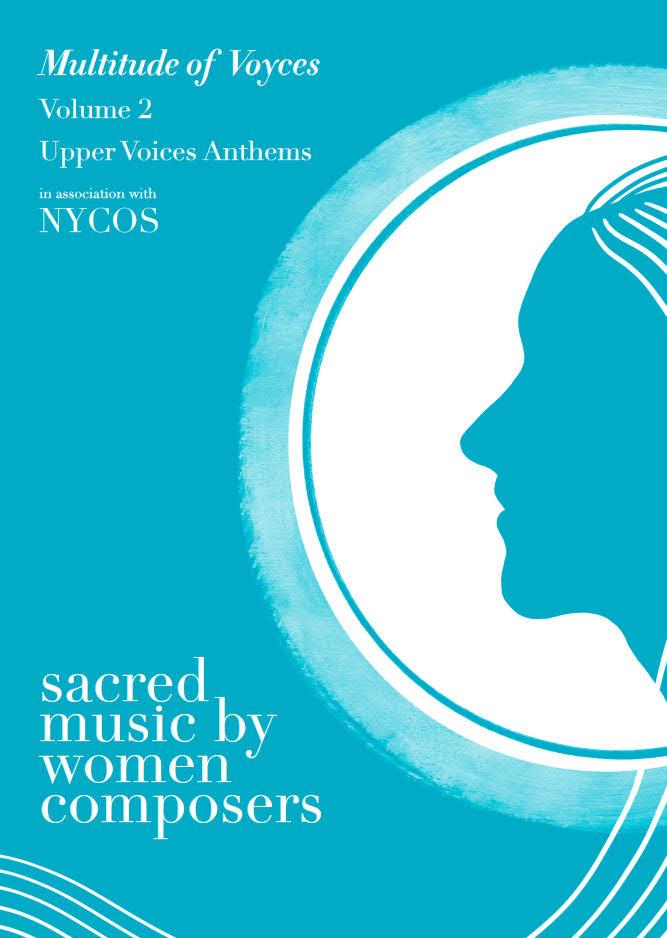Sacred Music by Women Composers - Volume 2
Upper Voices Anthems
This item is hard to get, though we may be able to secure one for you. Please email us with the form below and we will let you know.
- Composers: Roxanna Panufnik (1968-), Elizabeth Poston (1905-1987), Olivia Sparkhall, Grace Williams (1906-1977), Lili Boulanger (1893-1918), Clara Schumann (1819-1896), Amy Bebbington (1975-), Judith Bingham (1952-), Hilary Campbell (1983-), Ninfea Cruttwell-Reade (1989-), Carlotta Ferrari (1975-), Angelina Figus (1957-), Joanna Forbes L'Estrange (1971-), Bianca Maria Furgeri (1935-), Margie Harrison (1955-), Hildegard von Bingen (1098-1179), Carol J. Jones (1993-), Linda Kachelmeier (1965-), Caroline Lesemann-Elliott (1996-), Sarah MacDonald (1968-), Gemma McGregor (1965-), Morfydd Owen (1891-1918), Rebecca Clarke (1886-1979)
- Instrumentation: Organ, Piano, Voice, Basso continuo, SATB Choir, Harp, Female Choir, Piano (or Harp)
- Work Languages: English, French, Latin
- ISBN:
- Size: 6.9 x 9.8 inches
Works:
- Bebbington: I sing of a maiden
- Bingham: Les Saintes Maries de la Mer
- L. Boulanger: Pie Jesu
- Campbell: Our Endless Day
- Clarke: Ave Maria (1937)
- Cruttwell-Reade: Car auprès de toi
- C. Ferrari: Songs for Hildegard
- Figus: Hodie Christus natus est
- L'Estrange: Give us grace
- Furgeri: Ego flos campi
- Harrison: The Lord is my shepherd
- Bingen: O virtus Sapientie
- C.J. Jones: All shall be well
- Kachelmeier: O vis eternitatis
- Lesemann-Elliott: Regina Caeli
- MacDonald: O beata Trinitas
- McGregor: Love was his meaning
- Owen: He prayeth best who loveth best
- Panufnik: Love Bade Me Welcome
- Poston: Te lucis ante terminum
- Cl. Schumann: Let earth's wide circle round
- Sparkhall: Lux Aeterna
- G. Williams: Psalm 150
Publishers use a lot of words to describe what they sell, and we know it can be confusing. We've tried to be as clear as possible to make sure you get exactly what you are looking for. Below are descriptions of the terms that we use to describe the various formats that music often comes in.
Choral Score
A score for vocalists that only contains the vocal lines. The instrumental parts are not there for reference. Generally, cheaper than a vocal score and requires multiple copies for purchase.
Facsimile
Reproductions of the original hand-written scores from the composer.
Full Score
For ensemble music, this indicates that the edition contains all parts on a single system (there are not separate parts for each player). In larger ensembles, this is for the conductor.
Hardcover
Hardbound. Generally either linen-covered or half-leather.
Orchestral Parts
Similar to a wind set, this is a collection of parts. In the case of strings, the numbers listed are the number of copies included, though generally these are available individually (often with minimum quantities required).
Paperback
When publishers offer multiple bindings (e.g. hardcover) or study scores, this is the "standard" version. If you're planning to play the music, this is probably what you want.
Performance / Playing Score
A score of the music containing all parts on one system, intended for players to share. There are not separate parts for each player.
Set of Parts
For ensemble music, this indicates that there are separate individual parts for each player.
Solo Part with Piano Reduction
For solo pieces with orchestra, this is a version that contains a piano reduction of the orchestra parts. For piano pieces, two copies are typically needed for performance.
Study Score
A small (think choral size) copy of the complete score meant for studying, and not playing. They make great add-ons when learning concertos and small chamber works.
Vocal Score
A score prepared for vocalists that includes the piano/organ part or a reduction of the instrumental parts.
Wind Set
For orchestral music, this is a collection of wind and percussion parts. The specific quantities of each instrument are notated.
With Audio
In addition to the printed music, the edition contains recordings of the pieces. This may be an included CD, or access to files on the internet.
With / Without Fingering (Markings)
Some publishers prepare two copies - a pure Urtext edition that includes no fingering (or bowing) suggestions and a lightly edited version that includes a minimal number of editorial markings.


